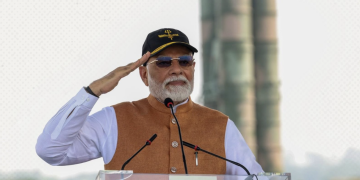Much has been written on President Trump’s tariff, a consumption tax and a protectionist policy meant to protect American industries and to reduce trade deficits. Guyana, as does Trinidad and Tobago, has a stiff tariff. The President has also levied a high tariff on other poor (developing, third world) countries. Tariff is a tax on imports raising the price of goods for local consumers. It will have a negative effect on our country as prices for our exports to USA will increase resulting in the public purchasing less from Guyana. Guyana and T&T should not have had an increase in tariff as trade surplus has to do with exports of energy to USA. And Guyana should purchase more from USA. Since the Americans are not involved in any serious direct negotiations with the Guyana or Trinidad government, the hired lobbyist (being handsomely paid by Guyana some US$50K monthly plus $15K expenses) must bring to the attention of the American Commerce Department the fact that our trade surplus is attributed to the exports of oil which has been exempted from any tariff. Leaving out oil, Guyana’s trade with USA is in the red, meaning we import more than we export. Guyana exports a small number of goods to USA besides oil.
Generally speaking, as anyone who studies economics knows, a tariff is imposed on goods to raise revenues and or to reduce imports in order to conserve foreign exchange and or to punish a nation or company to model their political behavior. The consumer is ultimately affected as the increased price is passed on to consumers. Anytime there is an increase cost in doing business, the consumer is affected. A tariff increases cost.
Trump has imposed tariffs in order to obtain greater trade balance with countries that USA has huge trade imbalance (deficits – meaning it imports a lot more than it exports). As Vice President Jagdeo noted in a press conference, Guyana’s trade surplus is a result of Guyana exporting large quantities of oil to USA – oil produced by Exxon, an American company with some sold on the international market and the rest bought in USA. Exxon and USA are prime beneficiaries, and Guyana has benefited enormously with royalties and profit sharing plus the huge investment of over US$40 billion that created jobs and better the lives of thousands. Exxon will pump more revenues in our economy that ultimately redounds to benefit of USA as the oil is refined and sold overseas improving trade balance with those countries that purchase USA oil. Therefore, Exxon should not be punished by the American Administration for its huge trade surplus. Indeed, President Trump has not penalized Exxon through which Guyana is running huge trade surplus. What Trump is seeking is an increase in imports from USA. Instead of purchasing from China, for example, Guyana can increase its purchases from USA. The trade balance with China is not known; but it is believed to be in China’s favor exceeding US$1.5 billion. For Guyana’s security interests. It is better if Guyana can reduce imports from China and increase imports from USA. This will lead to Trump reducing if not altogether eliminate the tariff on Guyanese exports to USA.
It is not known how directly involved is the American President on tariff relating to Guyana or Trinidad or any other country. The President is being advised by the Commerce Secretary and Department. Guyana’s lobbyist in Washington, a former staff member and friend of the President, is in a position to wield influence on him on Guyana’s tariff.
Trump’s tariff has landed a very heavy blow on Guyana and other poor nations that open global trade was supposed to help. For decades, the U.S. granted special trading privileges to poor countries, cutting tariffs and boosting market access to lend emerging countries a helping hand. Now the new President wants to end the benefits because countries are taking advantage of US generosity by purchasing goods from countries unfriendly with USA.
Guyana should cut a deal with Washington to buy more American goods and reduce its tariff on American purchases including on vehicles that fetch up to 250% tariff. In addition, Guyana should encourage more American companies to invest in Guyana to tie up the two economies. Greater amounts in contracts should be given to American companies rather than Chinese. Such act will result in Trump exempting Guyana from tariff.

































































